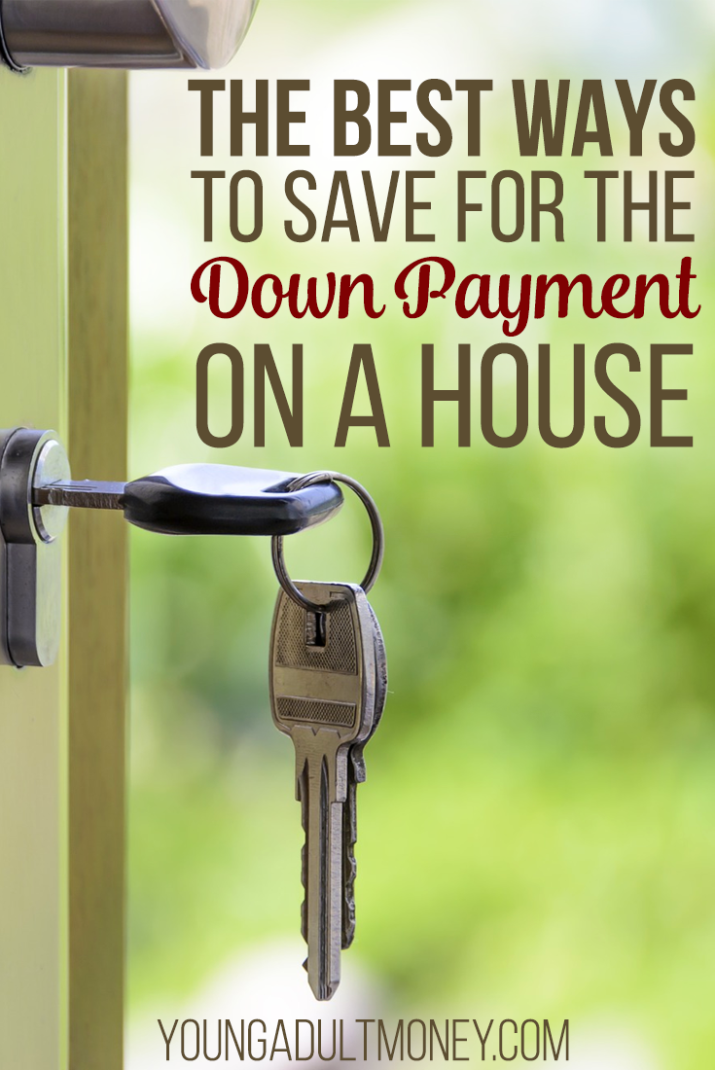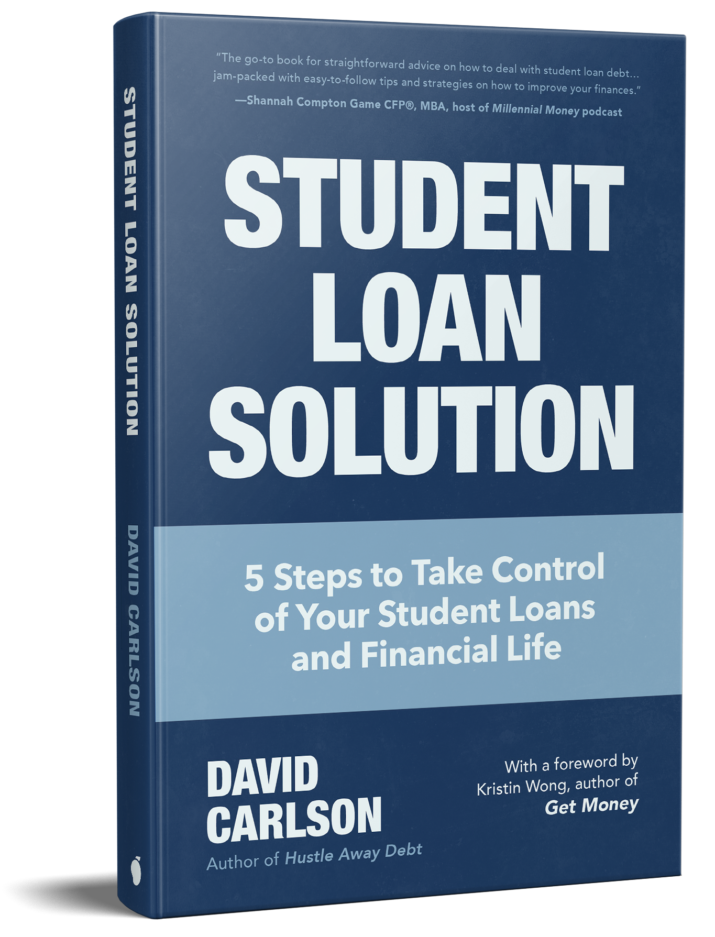 If you’re like most millennials, you think a lot about buying a home.
If you’re like most millennials, you think a lot about buying a home.
And if you’re reading this blog, you’re probably already convinced that before you buy, you want a hefty down payment saved – ideally 20% of the home’s purchase price. That will save you from PMI and let you deal with all the expenses that come with home ownership.
If you want to be ready to buy a home, you’ll need money saved. But there are several good options with pros and cons for how to save up that down payment.
How to Save #1: Slow and Steady…
Like with retirement, saving for a down payment is a big financial goal that can be reached through a series of small steps over time. If you know you want $20,000 or $50,000 for your 20% down payment, you can set aside $200, $500, or even $1,000(!) from every paycheck until you get there.
If you’re paycheck isn’t big enough or you have a lot of debt (student loans anyone?) consider finding ways to increase your income. Try to increase your income at your 9-5 by using online salary data to your advantage or improving relevant job-related skills.
Are you maxed out at your job but still want to make more money to save up for a down payment? Consider starting a side hustle to make money outside of your 9-5. Read DC’s book Hustle Away Debt or check out our 50+ ideas of how to make side income from the comfort of your home.
How to Save #2: …Fast and Sharp
On the other hand, you will reach your down payment goal faster if you are sometimes able to save larger amounts of money all at once.
Tax refunds, bonuses, cash birthday gifts, inheritances, and side hustle income are good candidates for this kind of “fast” savings and can shave years off your time to a 20% down payment.
Where to Save #1: High-Interest Savings Accounts
A great way to keep your down payment savings from getting accidentally spent on other goals is to give them a dedicated savings account of their own. Choosing the best bank for this account may mean finding a new bank (online banks usually have the best interest rates – CIT Bank has the highest we’ve seen with a 2.45% APY) or just opening a separate account at your current bank.
With interest rates like they are now, you won’t make a lot, but every little bit counts! And more importantly, this is a secure option for your savings. If you are planning on buying a house within the next few years, you probably don’t want to expose your down payment savings to the stock market.
Where to Save #2: Certificates of Deposit
If you plan to buy more than a year from now, you can look at interest rates on Certificates of Deposit or CDs. Most banks offer them; in return for being unable to access your money for a period of time (usually 6 to 18 months) you get a better interest rate.
Right now, in 2019, CD rates are not very good and probably not worth it. But if you’re reading this post in 2020 or beyond, they might return as much as 5% (which is a rate I got on a CD I bought in 2007, before the economic crash.)
Where to Save #3: In a Tax-Advantaged Account
If you’re not sure if you are actually going to buy a home or not, you might want to consider hedging your bets and saving in your retirement accounts (401(k) or IRA). (Obviously this is only an option if your country’s rules allow it.) In both cases, you can withdraw a certain amount without the usual penalty in order to buy a first home.
Before you decide to use your retirement funds for a down payment, you should consult a tax attorney and/or financial advisor. This could be a good place to save for a down payment, especially if you’re not sure if you’ll buy a house (if you don’t, the money will still be there for retirement.) But it could also be very risky to withdraw funds that would otherwise grow until retirement. Be careful!
Where to Save #4: In a Taxable Account
The problem with saving for a down payment in a high-interest savings account is that you still don’t beat inflation (at current interest rates.) So some people choose to put at least some of their down payment savings into the stock market. Like with all investments, this can make you look like a genius or like a fool, depending on how much the money has grown or lost by the time you need it.
This could, however, be a very good option if you’re not planning to buy a house for at least five years. Maybe you’re just out of college and don’t plan to buy until your 30s, but do want to save something now — a diverse portfolio in a taxable account could be a great option for you. If you plan to buy in the next two or three years, however, it’s probably too risky.
If you’ve already started planning to buy a home, how are you saving? If you’ve already bought a home successfully, got any advice?



Interesting!
We saved our large down payment the slow and steady way. It paid off though, because we put a lot more than 20 percent down on our current home. I’m so glad we made that move years ago. It has made our lives so much easier in so many ways.
We took the slow and steady approach ourselves with our most recent purchase and put down just shy of 30% as we wanted to do all we could to avoid PMI since we’re self-employed. We had to pay PMI on our first house and knew there was no way we’d be doing that again. We just put the money in an online savings account – we wanted to avoid loss in the market since we were planning on buying within a few years so it worked for us.
I would put the money in a high-yield savings account so that I know it is insured. I wouldn’t opt for the IRA route, even though it’s allowed. I think money you save in a retirement account should be kept there for the intention of withdrawing at the applicable age.
My fiance and I are definitely in the very initial process of starting to save for a home. We are quickly realizing that, while we make a sustainable income at our day jobs, we definitely need to find a way to increase our income to save our goal of 20% down for a home. With $70,000 of student loan debt between us, saving is not easy! We know that it will be a slow and steady process, even when we do increase our income. Thanks for all of the tips!
Thank you for listing the IRA and taxable account option. I know most will just say that you should invest in safe investments like a CD or savings account. It’s a little difficult trying to buy a house in the NYC metro area. If I only put money that I was saving for a down payment in a savings account, it would be tough to earn anything while the down payment needed is very high. Plus, what if I change my mind and decide not to buy a house? So I think it makes sense to put some in an IRA and taxable account.
The slow & steady way is how we saved for our house down payment. Mostly because I didn’t have any additional time for side hustles, etc. We also did our best to keep monthly expenses down (preventing lifestyle inflation) so this increased our savings rate.
We saved in a taxable brokerage over the course of two years for our most recent home purchase. We probably got 3-4K in a savings boost thanks to saving in a good year.
If I were to do it again, I would probably forgo most or all retirement savings and get it done in a year or two, and ramp the retirement savings back up.
I don’t really like the idea of withdrawing money even though it’s not likely to make a huge difference in the end.
I want to do this fast and sharp. I read about a couple that were side hustling as dog walker/sitters and saving up for their mortgage down payment so they could buy a house. I want to do something similar to that. I don’t have time to wait 5-10 years to save up. :-P
Great Article! Especially Item #3. Most people hear IRA and they immediately think that they cannot receive a distribution of any funds until they are 59 1/2 without some heavy penalty but there some very nice loopholes/benefits that can be taken early. First time homebuyer being one of them!
You have some great tips to think about there. I agree that a high-interest savings account doesn’t really get the return you need and the stock market can be risky. Another option we’ve looked into recently is buying gold and silver – it’s a lot more stable and has always trended upwards. If you start putting your savings into purchasing these early on, it could really pay off by the time you’re ready for a home deposit and you would have gained more with these commodities than the return on a high-interest account.